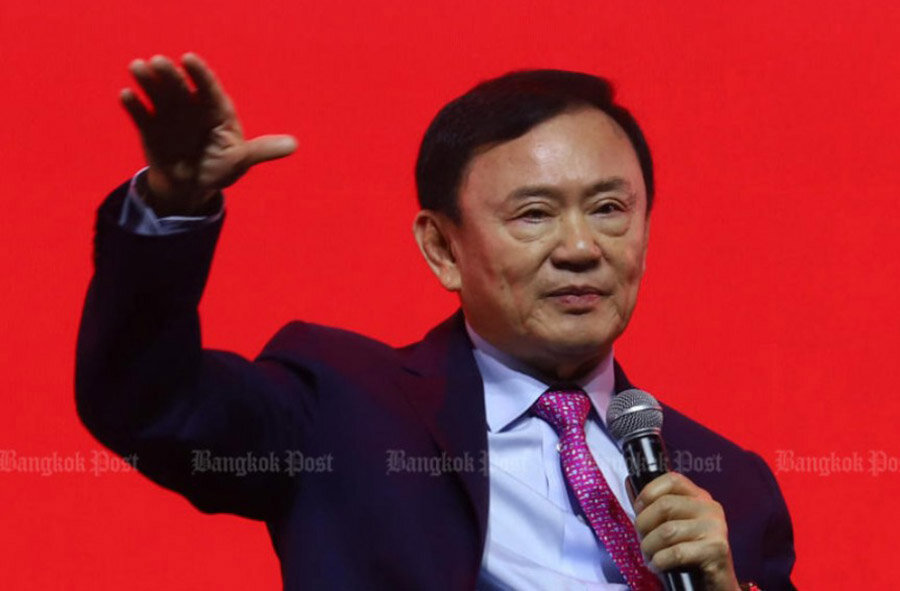Thailand Proposes $1 Million Golden Visa for Foreign Investors

Photo: Bangkok Post
Former Thai Prime Minister Thaksin Shinawatra has proposed granting long-term residency to foreigners in exchange for a $1 million investment. An additional benefit would include the right to purchase real estate, Bangkok Post reports. While Thaksin remains influential, some experts question the legitimacy of proposals coming from a former head of government.
The proposed program aims to attract up to 600,000 investors and generate up to $500 billion in revenue. This capital could boost Thailand’s real estate sector and fund education. Thaksin emphasized broader macroeconomic goals:
"This will drive GDP growth, reduce national debt, and stimulate domestic consumption," he said. "It's fresh capital that we should leverage."
Thaksin still wields influence via the ruling Pheu Thai party, led by his daughter. However, the Constitutional Court has temporarily suspended Paetongtarn Shinawatra from the prime minister’s role amid an ethics investigation. Thaksin also faces a long-pending defamation case involving the monarchy, due for judgment next month—adding uncertainty to the proposal’s future.
In addition to the golden visa, Thaksin suggested raising Thailand's airport service fees by 300 baht ($9.20), which could bring in up to 40 billion baht annually—a 40% increase from current levels. The funds would go toward upgrading six major airports and support plans to transform Thailand into Southeast Asia’s aviation hub.
"AOT should become an economic engine as an aviation hub, cargo center, and MRO hub," said Thaksin. Shares in Airports of Thailand (AOT) surged 11%, reaching their highest since March, after Kaohoon reported plans for increased landing, parking, and transit fees.
Thailand’s economy heavily depends on exports and tourism. Over the past decade, GDP growth averaged under 2%, lagging behind regional peers. In 2025, GDP is expected to grow by just 1.3–2.3% due to high household debt and a drop in tourist arrivals.
The number of visitors from China continues to decline. In H1 2025, Thailand welcomed 2.3 million Chinese tourists—1 million fewer than during the same period in 2024. The national tourism board has cut its forecast from 40 to 35 million foreign visitors. A high-profile incident—the kidnapping of a Chinese actor transiting through Thailand to Myanmar—damaged the country’s image. Thaksin proposed providing Chinese tourists with complimentary insurance to rebuild trust.
Thailand also faces risks from U.S. trade policy, including a proposed 36% tariff on exports to its largest market. To counter these threats, the government is developing new capital attraction tools, such as tax exemptions for crypto capital gains and a one-year reduction in property transaction fees (from 2% to 0.01%) for properties under 7 million baht ($201,700).
Simultaneously, the government is cracking down on shadow real estate deals, particularly where Thai citizens act as proxies for foreign buyers. Legal tightening has reduced nominee ownership significantly.
Thaksin’s proposals are part of a broader national debate about economic revitalization. Amid sluggish growth, declining tourism, and external risks, the government is exploring fresh revenue sources. However, whether these ideas gain traction depends not only on their substance—but also on Thailand’s shifting political landscape.
See also:
Thailand to Legalize Casinos: Government Relaxes Gambling Rules
Bangkok Property Prices Rise for Second Consecutive Quarter
Thailand Housing Market Post-Earthquake: From Boom to Stagnation
Under the Phuket Sun: Property Pitfalls for Foreign Buyers in Thailand
Thailand Restores Financial Requirements for Tourists
Подсказки: Thailand, golden visa, real estate, investment, Thaksin Shinawatra, tourism, AOT, politics, immigration, economy








